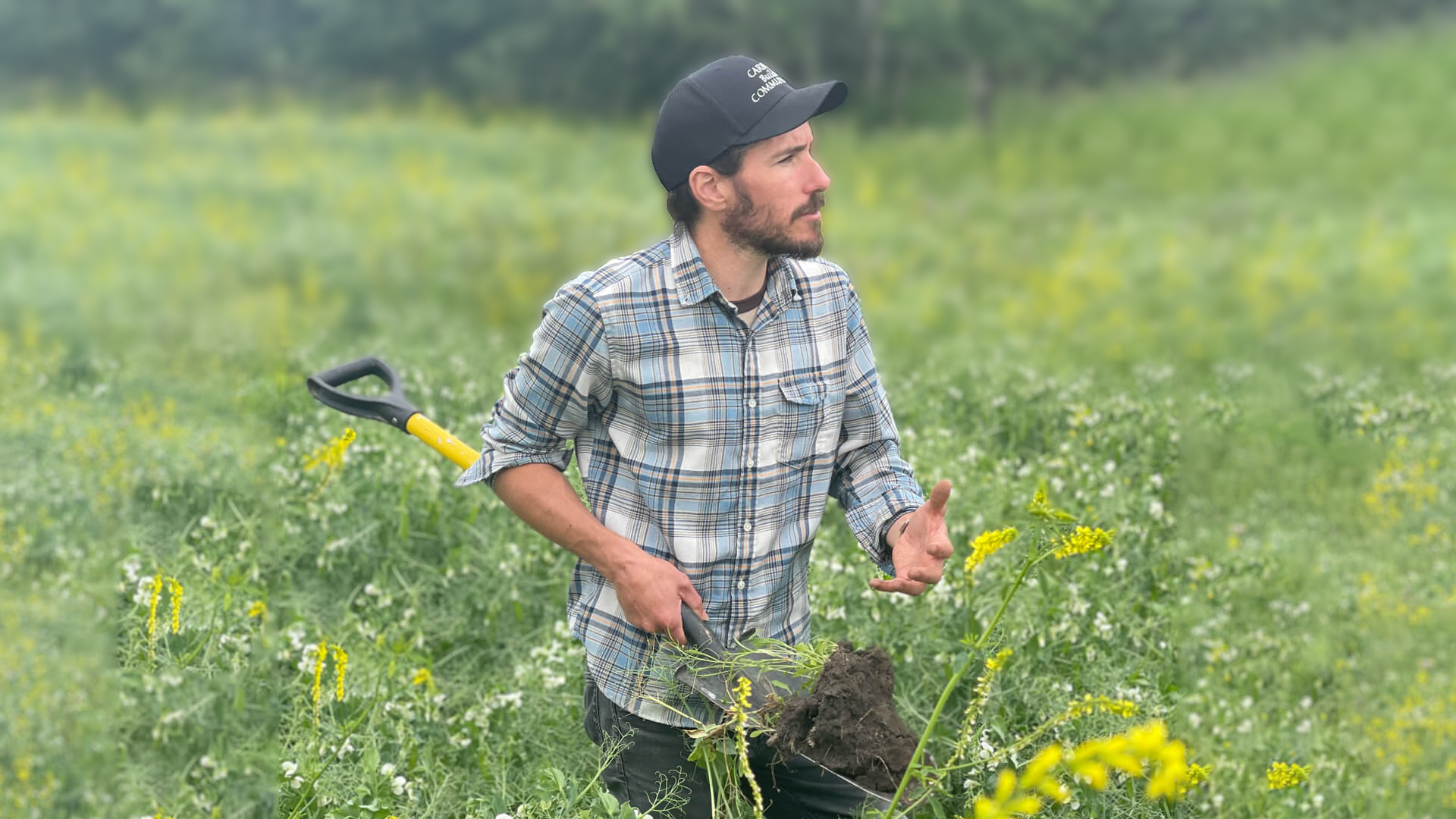The principles of redesigning agricultural systems to regenerate soils, biodiversity and the bottom line are the same no matter where you are in the world. It is how we interpret and apply them which changes, and this is what Groundswell is all about – exploring the nuances of regenerative approaches across the diverse landscapes of the UK.
While I’ll be joining an incredible line up of experts and experienced farmers to delve deep into the detail, my sessions – ‘First principles’ at Groundswell Festival in Hertfordshire and ‘Redesign to Regenerate’ at Groundswell Outreach (GO) Falkland in Scotland – will lay a foundation.
Diversity will be a key theme, and with examples at both the field and landscape levels, we’ll discover how diversity of plant species is key, as seen by the multi-faceted role our ecological infrastructure – the flower strips, trees, shrubs and hedgerows – play in the ecosystem, and how we can harness their benefits as well as enhance plant diversity within production systems.
We will look at how plant diversity dilutes food sources for pests and diseases, enabling us to reduce our dependence on crop protection products. And how, through the variation in rooting depths and habits, plant diversity can lower the need for fertilisers.
Below ground, plant diversity has been shown to stimulate soil biology and improve soil structure, further improving nutrient cycling. With intercropping and diverse pastures, as well as buffer strips and ecological infrastructure being viable options, plant diversity becomes a central tool of redesigning our farming systems.
At Groundswell, I’ll be taking the conversation further in two integrated pest and disease management (IPDM) sessions. The first will focus on designing with diversity where we will talk about how an IPDM program makes other in-field strategies more likely to succeed. The second session will move onto the microbiome and highlight how beneficials that live around, on or in plants can either directly antagonise pests and disease or induce the production of defence chemicals within the plant.
In Scotland, I’ll be discussing how we conceptualise ‘helping farming systems’, redesigning them and moving towards something more sustainable. As a result, the session at GO Falkland will also talk about the subtleties of philosophy around transition.
For example, is a ‘leap’ better than a ‘step’ when moving towards a regenerative approach? We’ll compare the advantages and disadvantages of incremental versus transformative change, bringing conscious thought to contributing factors whether that’s financial pressure, capacity to take risks or desired speed of change.
Whichever is right for you and your farm, remember regenerative agriculture, is still an emerging concept and it takes an open mind, initiative and a certain amount of resilience to reimagine a landscape and its farms.
I hope you’ll join me at either or both Groundswell Festival and GO Falkland this year. Certainly, I’m looking forward to stimulating and steering rich and meaningful conversations around the specific challenges and opportunities that originate from this beautiful landscape.
Joel Williams is a soil health educator, rethinking soils through a lens of biology. He provides lectures, workshops and consultation on soil management, plant nutrition and integrated approaches of sustainable food production. Find out more at https://integratedsoils.com.
Joel will be speaking at the Groundswell Festival 2023 as well as Groundswell Outreach (GO) Falkland, a fringe Groundswell event with a regional focus in Scotland.

